Vitiligio
Our dermatologists approach vitiligo treatment with various methods tailored to your individual needs. While there's no definitive cure, treatments aim to manage the condition and improve skin appearance. With a proper skin consultation, we can work with you to determine the best outcome for your skin condition. Schedule a skin consultation to begin your healthy skin journey with the Center for Surgical Dermatology & Dermatology Associates.
Examples of Vitiligio
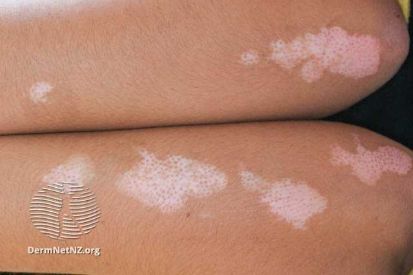
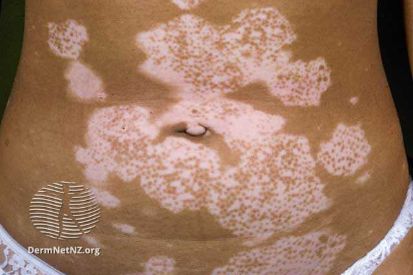
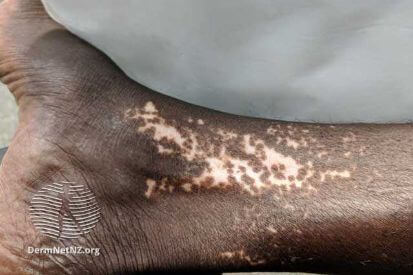
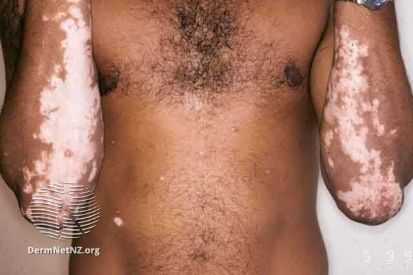
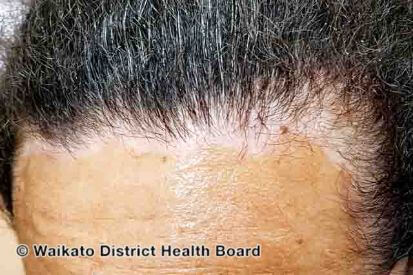

What are the Symptoms of Vitiligo?
- Patches of lighter-colored or white skin appearing any place on the body.
- Some people with vitiligo develop a few patches, while others are affected in large parts of the skin area.The edges of the patches are well-defined, but irregular.
- There are generally not any other symptoms of the condition, and people affected otherwise feel completely healthy.
What Causes Vitiligo?
- Vitiligo is believed to result from a combination of genetic, autoimmune, and environmental factors.
- It occurs when the immune system mistakenly attacks and destroys melanocytes, the cells responsible for producing skin pigment.
- Genetic factors may contribute to an individual's susceptibility to vitiligo, and certain environmental triggers.
Can You Prevent Vitiligo?
Vitiligo FAQs
Vitiligo can occur anywhere on the body. However, it often develops in areas exposed to the sun, such as the face, hands, arms, and feet.
Vitiligo can impact self-esteem, but there are treatment options available. Dermatologists may recommend topical steroids, phototherapy, or other therapies to help repigment the skin.
While there is no cure for vitiligo, various treatments aim to improve skin appearance. Dermatologists may tailor treatment plans based on individual needs, and supportive therapies can help manage the condition.
Vitiligo may spread over time, and its progression can vary from person to person. Dermatologists diagnose vitiligo through a physical examination and may use additional tests to assess the extent of depigmentation.
Sun exposure can potentially worsen vitiligo. Dermatologists often recommend protecting the skin from the sun using sunscreen and clothing to prevent sunburn in depigmented areas.
Treatments for Vitiligo
Our team of skin experts can help you achieve your healthy skin goals. Schedule your appointment today to start your skin journey.
Related Blog Posts

- Skin Cancer
- General Dermatology
- Chronic Skin Conditions
Learn more about the most common types of skin lesions we see and how our dermatologists remove them.
Read More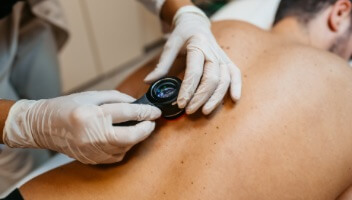
- Skin Cancer
- General Dermatology
- Skin Exams
- Sun Safety
If your dermatologist finds a suspicious mole during your TBSE, hey want to perform a skin biopsy.
Read More
- Skin Care
- Cosmetic Treatments
Unlock the secrets to achieving radiant, glowing skin. Explore expert tips and skincare routines tailored to nourish and revitalize your complexion, empowering you to embrace a luminous and youthful appearance.
Read MoreFeatured Products

ZO® Daily Power Defense
Daily Power Defense has been elevated with ZO’s exclusive technologies – including new ZPOLY™ complex – to enable a long-lasting, youthful and healthy skin complexion. This advanced serum is clinically proven to strengthen skin’s protective barrier while defending against environmental stressors and premature signs of aging. 50 mL / 1.7 Fl. Oz.

ZO® Daily Sheer Broad-Spectrum SPF 50
Water and perspiration resistant, this non-greasy sunscreen, with ZOX12® complex dries quickly with a sheer finish to shield against UVA/UVB and IR-A rays, and HEV light. Protects while also hydrating. 45 mL / 1.5 Fl. Oz.
